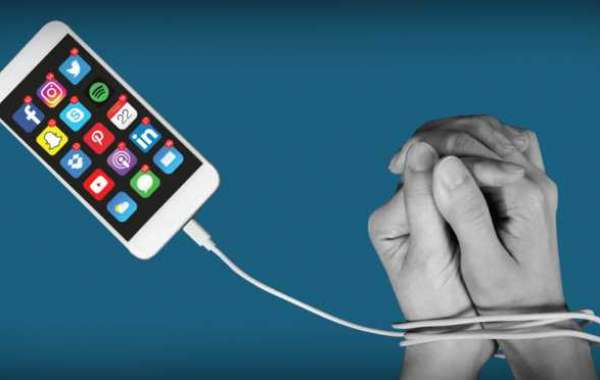If you or your child is suffering from Screen Addiction, there are several ways to treat it. Screen time should be minimized and parents should teach their children about the physical repercussions of excessive screen time. A healthy lifestyle should include a variety of activities that promote values and good character. In addition, parents can provide their child with positive role models and teach them valuable skills. These ways can make a world of difference. In this article, we'll discuss some of these ways to treat this problem.
Signs of screen addiction
If your child only wants to spend time on their tablet, laptop, or mobile phone, you may be witnessing the symptoms of screen addiction. They may not want to do other activities or enjoy books, toys, sports, or YouTube. If you notice your child acting out scenes from Angry Birds while talking to you, chances are they are addicted to screens. You might also notice them sneaking a peek at their tablet during a conversation.
Using your screen excessively can have a negative impact on your life and work. The Pew Research Center reported that 51% of teens and 15% of adults report losing focus at work due to their cell phone use. It is important to be aware of the signs of screen addiction, because they can help you recognize a potential problem. It is also crucial to recognize that screen use can interfere with other activities and affect your social life, and your family relationships.
Children with ADHD are particularly susceptible to screen addiction. In fact, 25% of children with ADHD have an increased risk of screen addiction. The reason is that these fast-paced games and social media sites trigger dopamine releases, the same reward chemical that underlies addictions. ADHD kids' brains are more sensitive to these chemicals and have a more difficult time disengaging themselves from screen time. As a parent, you need to be vigilant to prevent screen addiction from ruining your child's health.
Physical repercussions of screen addiction
There are numerous physical repercussions of excessive screen time. Children who spend hours glued to their screens experience moodiness, impulsivity, and difficulty paying attention. They also tend to have impaired cognitive functions, suffer from sensory overload, and lack restorative sleep. But the physical effects of screen time are equally troubling. Excessive screen time can cause poor posture, skeletal misalignment, and muscle and tendon disorders.
It can interfere with other activities, including schoolwork and relationships. For children and adolescents who spend long hours in front of screens, their time away from the real world can be largely dominated by the screens. Lack of time away from screens can negatively impact their physical and mental health, resulting in poor grades and poor relationships. For these reasons, it is critical to address screen addiction early on, and seek professional help to overcome it.
High amounts of screen time can delay child development. Between two and five years old, children's brains are rapidly developing. In addition to the developmental benefits, too much screen time can negatively impact development. In addition, young children who spend most of their time in front of screens are wasting precious time. And teens who spend excessive amounts of time on screens are missing out on socialization opportunities and valuable experiences. Further, excessive screen time may cause other problems, such as low self-esteem and reduced IQ.
Treatment options for screen addiction
Several effective treatment modalities are available to treat screen addiction. These include cognitive behavioral therapy, experiential therapy, and dialectical behavior therapy. Each aims to address the underlying psychological and behavioral issues associated with screen addiction. Cognitive behavioral therapy, for instance, aims to change the habitual thought patterns that lead to continued screen addiction. Cognitive behavioral therapy can also be used to help overcome self-sabotage, develop interpersonal effectiveness, and foster mindfulness.
Early detection of the disorder is vital to limit potential addiction problems. The effects of excessive screen time on children and adolescents are not well understood, but they may show underlying social, emotional, and developmental problems. Even though screen addiction is an individual issue, it does fit into a larger category of behavioral addiction, also known as process addiction. Other process addictions include video games, exercise, gambling, eating, and shopping. Parents need to be aware of the signs that their children are becoming addicted to screens.
The issue of screen addiction is complex, and the term "addiction" itself is loaded. Screens may be a person's laptop, PC, or smartphone. Screens can range from social media and dating apps to video games and computer games. Depending on the severity of the addiction, screen use may be passive, active, or solitary. Screen addiction may also result in an unhealthy dependence on the screen, so understanding the underlying causes and treatment modalities is essential.








